The 55th Session of the Human Rights Council
26 February - 5 April 2024
Item 3 – Promotion and protection of all human rights, civil, political, economic, social and cultural rights, including the right to development
Interactive Dialogue with the Independent Expert on the rights of people with albinism
6 March 2024
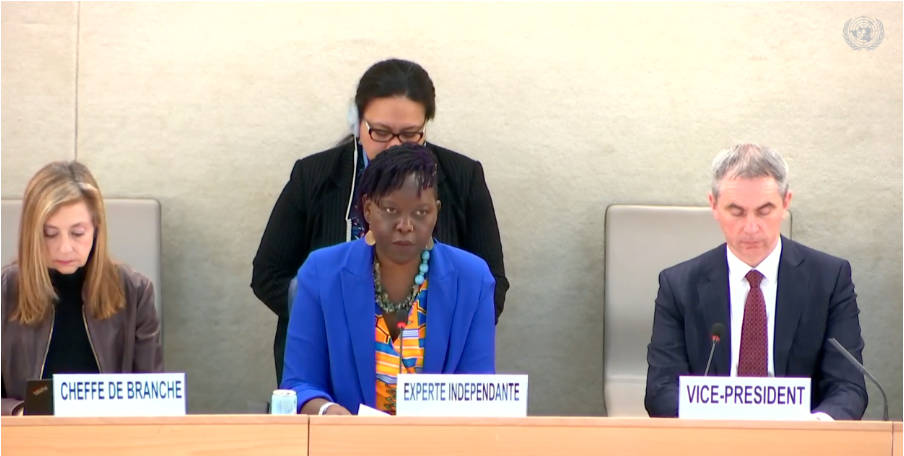
By Julia Rowland / GICJ
Executive summary
On 6 March 2023, the 16th meeting of the 55th Regular Session of the Human Rights Council considered the report (A/HRC/55/45) of the Independent Expert on the Rights of People with Albinism.
Ms Muluka-Anne Miti-Drummond opened the interactive dialogue by presenting the findings of her latest report, which focused on the right to education of persons with albinism.
In her opening statement, the Independent Expert outlined her report’s findings. She underscored the need to ensure inclusive and quality education for individuals with albinism worldwide. She highlighted persistent barriers for persons with albinism, such as exclusion from curricula, lack of accommodations, transportation challenges, stigma, discrimination, and bullying. Ms Miti-Drummond emphasised the urgent need for concerted efforts to address these issues and called for expedited implementation of relevant laws and regulations to translate commitments into concrete results that ensure the protection of the rights of people with albinism.
Many delegations welcomed the report of the Independent Expert and articulated their unwavering commitment to upholding the rights of persons with albinism, particularly in the realm of education, and acknowledging them as integral members of society deserving of equal opportunities. They underscored their respective national policies, legal frameworks, and collaborative endeavours aimed at advancing the educational rights and socio-economic integration of individuals with albinism. They also highlighted the imperative of raising awareness about the unique challenges faced by persons with albinism in accessing education and combating discrimination and violence.
Various Non-Governmental Organisations (NGOs), highlighted the urgent need to address challenges faced by persons with albinism in accessing education. They praised the Independent Expert's report for shedding light on pervasive discrimination, superstitions, and myths surrounding albinism that lead to stigma and exclusion from educational opportunities. Emphasising the importance of awareness-raising among educators and policymakers, they advocated for policies and accommodations to support learners with albinism. Particularly in India, where individuals with albinism face significant marginalisation and lack comprehensive data, NGOs urged the government to devise a national policy, collect segregated data, and implement welfare schemes to support this vulnerable community. By addressing discrimination and ensuring equal access to education, these efforts aim to promote inclusivity and socio-economic advancement for persons with albinism globally.
The Independent Expert urged States to take measures to improve educational access for persons with albinism, including establishing and implementing policy guidelines for educators, ensuring necessary accommodations, monitoring implementation, and collecting relevant data. Additionally, the Independent Expert recommended infrastructure improvements, transportation assistance, and social protection schemes to support school attendance. International cooperation and financial support are also crucial for providing necessary resources, capacity-building, and assistance to educators and persons with albinism. Strengthening civil society organisations and ensuring their inclusion in policy development and implementation processes are essential for effective support and advocacy efforts.
Geneva International Centre for Justice (GICJ) congratulates the Independent Expert on her report on the right to education for people with albinism. We remain extremely concerned about the ongoing discrimination faced by people with albinism, especially in the area of education. We join the Independent Expert’s urge to implement education policies that ensure equal access to education and non-discrimination for people with albinism.
Background
Albinism is a rare, genetically inherited condition found globally, irrespective of ethnicity or gender. It primarily results in a lack of melanin pigment in the hair, skin, and eyes, making individuals more susceptible to sun exposure. Despite its prevalence, albinism remains widely misunderstood both socially and medically. Prevalence rates vary by region, with Africa having the highest incidence, around 1 case in 4,000, compared to Europe, where the rate is approximately 1 case in 13,000. Erroneous beliefs and myths, often influenced by superstition, contribute to the marginalisation and social exclusion of those with albinism. Persons with albinism constitute a distinct group whose human rights have been overlooked for centuries. This neglect has entrenched stigma, discrimination, and violence against them across many countries. Their experiences implicate various human rights concerns, including discrimination based on colour and disability, challenges accessing education, the right to health, protection from harmful traditional practices, violence including ritual attacks, trafficking of body parts for witchcraft, and instances of infanticide and child abandonment.
Resolution A/HRC/RES/28/6, adopted by the Human Rights Council on 10 April 2015, established the mandate of an Independent Expert on the enjoyment of human rights by persons with albinism. Ms. Muluka-Anne Miti-Drummond, a human rights advocate from Zambia, assumed the role of Independent Expert on the enjoyment of human rights by persons with albinism in August 2021. The expert is tasked with engaging with states and stakeholders, promoting best practices, identifying challenges, and providing recommendations to the Human Rights Council and the General Assembly. Their responsibilities include gathering information, offering advisory services, raising awareness, and reporting on developments and obstacles to the realisation of human rights for persons with albinism.
Reports of the Independent Expert on the right to education of people with albinism
The report of the Independent Expert on the rights of people with albinism on (A/HRC/55/45) focuses on core areas of concern that limit the right to education for people with albinism: bullying, stigma, lack of access to appropriate accommodations for learning, and lack of protection from the sun.
Bullying, Stigma, and Discrimination
Albinism, a condition shrouded in misunderstanding and misinformation, presents a pervasive global challenge, particularly in regions like Africa and parts of Asia. Entrenched beliefs in the condition’s supernatural origins fuel harmful superstitions, perpetuating myths that individuals with albinism possess mystical powers or are contagious. As the report elucidates, "in some African countries, there is a belief that albinism is contagious, perpetuating fear and exclusion." These unfounded beliefs not only foster fear but breed discrimination, contributing to the marginalisation of those with albinism within their communities.
Education often serves as a battleground for individuals with albinism, where they confront bullying and name-calling. According to the report, "bullying was identified as a significant barrier to education for persons with albinism in almost 65 per cent of the responses." Despite efforts to implement anti-bullying policies, many individuals with albinism continue to endure discrimination within educational settings, hindering their academic progress and psychological well-being.
The ramifications of such discrimination extend far beyond the classroom, with individuals with albinism often grappling with profound psychological distress. The report highlights that "bullying and name-calling can lead to long-term psychological issues, including depression, self-isolation, and anxiety.” The psychological toll of bullying may result in individuals abandoning their education altogether, perpetuating cycles of marginalisation and exclusion.
Addressing the systemic issues of bullying, stigma, and discrimination necessitates multifaceted strategies encompassing awareness-raising, policy advocacy, and community engagement. By dispelling myths, fostering inclusive environments, and advocating for the rights of individuals with albinism, communities can take significant strides towards eradicating discrimination and ensuring all members’ full integration and participation, irrespective of their physical characteristics.
Even within communities that ostensibly celebrate individuals with albinism, incidents of bullying persist, underscoring the persistent nature of discrimination. While commendable efforts by civil society organisations seek to counteract bullying, financial constraints often impede their efficacy. Moreover, community stigma exacerbates the challenges faced by individuals with albinism, perpetuating exclusion and marginalisation.
Lack of understating of albinism
Teachers worldwide lack training and awareness about accommodating learners with albinism, which adversely affects the education and inclusion of these individuals. This lack of understanding is evident across various countries, where few educators receive formal instruction on how to support learners with albinism effectively. As a consequence, teachers often fail to grasp the impact of albinism on students' vision and struggle to adapt their teaching methods and classrooms accordingly. For instance, some educators remain unaware that children with albinism may have impaired vision despite wearing corrective glasses, leading to detrimental consequences for their education. While countries like Australia, the United Kingdom, and the United States of America include albinism-related training in specific courses on visual impairment, such provisions are not comprehensive enough.
This knowledge gap extends to basic understanding about the effects of albinism on learners' vision, sometimes resulting in inappropriate educational practices, such as forcing students to learn braille instead of print. In some instances, students with albinism are enrolled in schools for the visually impaired, where they may not receive adequate support tailored to their specific needs. Moreover, the lack of awareness extends to the vulnerability of individuals with albinism to skin damage, with many educational institutions failing to recognise the importance of sunscreen use as a reasonable accommodation. This lack of understanding underscores the need for improved teacher education and awareness initiatives to ensure the effective inclusion and support of learners with albinism in educational settings worldwide.
Risk of attack
In Africa, particularly in regions like Malawi and Mozambique, there's a prevalent risk of verbal and physical assaults targeting children with albinism on their way to school. Parents warn their kids about the dangers, especially during harvest time, when maize fields could serve as hiding spots for abductors. In Tanzania, fear of attacks has led many parents to keep their children at home, disrupting their education. However, there are efforts to encourage affected children to return to school, although challenges persist, particularly in areas affected by natural disasters like cyclones. To mitigate risks, some countries, including Tanzania, Malawi, and Madagascar, resort to placing learners with albinism in boarding schools. Yet, concerns linger about the safety and well-being of these children within such institutions. Instances of attempted abduction, sometimes involving school staff, highlight the ongoing threats faced by learners with albinism, emphasising the need for enhanced protection measures and awareness campaigns.
Accommodations
Accommodations for learners with albinism encompass a range of adjustments aimed at addressing their unique visual challenges. These accommodations include strategies such as carefully planning classroom seating, ensuring learners are not seated too close to windows to minimise glare, and providing materials in large print. But despite the importance of these accommodations, some countries fail to adequately support learners with albinism because of gaps in teacher training. Inadequate training results in educators not being equipped to adapt their lessons to meet the needs of visually impaired students, leading to a lack of suitable documents and resources.
Moreover, a significant issue arises from the lack of consultation with parents or caregivers regarding the individual requirements of children with albinism. This oversight results in instances where children struggle to follow lessons, see classroom materials, or participate in activities due to the absence of necessary accommodations. There are also concerns about the appropriateness of certain accommodations, such as isolated seating arrangements, which can lead to feelings of exclusion and potentially increase the risk of bullying.
Another significant challenge is the unequal distribution of assistive devices, with higher-income countries offering better access compared to low- and middle-income countries. While primary schools tend to receive more resources, families in many regions, particularly in Africa and Latin America, are expected to bear the financial burden of purchasing essential equipment, such as low vision devices. This financial strain often results in limited access to necessary tools, exacerbating educational inequalities for learners with albinism.
Accommodations for learners with albinism extend beyond the classroom to address their unique needs related to sun exposure. Countries such as Australia, Brazil, and Canada have implemented various measures, including providing verandas, window shutters, and protective clothing, to safeguard individuals with albinism from the harmful effects of ultraviolet rays. However, the impact of climate change exacerbates the risk, as prolonged sun exposure can lead to glare-related visual difficulties and increase the likelihood of skin cancer. Despite organisations’ efforts to offer practical advice and distribute protective gear, like sunscreen and hats, challenges remain, particularly in ensuring equitable access to these resources across different regions. Inconsistencies in sunscreen distribution and bureaucratic hurdles further impede efforts to provide adequate support to individuals with albinism, highlighting the need for improved coordination and access in addressing their health and educational needs.
Despite persistent challenges, noteworthy initiatives, often spearheaded by governmental bodies and collaborative efforts with civil society organisations, have surfaced to ensure that learners with albinism have access to education, Good Practices Identified by the Independent Expert
- Increasing Teacher Awareness: Nations like Australia, the United Kingdom, and the United States integrate specialised training on albinism into courses focusing on visual impairment. Collaborative efforts in the United Republic of Tanzania empower teachers to act as "Vision Ambassadors," promoting inclusivity and support for learners with albinism within school environments
- Ensuring Access to Assistive Devices: High-income countries implement robust policies to facilitate access to assistive technologies for learners with visual impairments, including those with albinism. For example, in Denmark, learners benefit from dedicated eyesight advisers and standardised kits containing essential devices like laptops and magnifiers. Collaborative efforts in Malawi establish specialised clinics offering low vision and skin screening services, ensuring essential eye care for over a thousand learners with albinism.
- Minimising Skin Cancer Risk: Nations like Australia implement comprehensive awareness campaigns and proactive policies to mitigate the risk of skin cancer among individuals with albinism. Initiatives such as the "no-hat, no-play" policy in schools and widespread public education efforts ensure widespread availability and affordability of sunscreen.
- Financial Support: Some countries introduce financial assistance programmes and scholarships to support the educational endeavours of learners with albinism. Kenya's Albinism Support Programme and South Africa's National Student Financial Aid Scheme offer bursaries and scholarships to alleviate the economic challenges faced by these learners.
These efforts demonstrate a commitment to addressing barriers and disparities faced by learners with albinism and fostering inclusive learning environments for all.
Recommendations
- Establish and implement policy guidelines for educators, in consultation with individuals with albinism, to ensure timely accommodations for both visual and skincare needs.
- Ensure learners with albinism receive the necessary support, including placement near the front of the class and access to assistive devices.
- Introduce frequent mechanisms to assess the effectiveness of accommodations and assistive devices and monitor progress.
- Provide training to educators and individuals with albinism on factors conducive to effective education.
- Enhance data collection efforts to inform policy formulation and resource allocation.
- Mobilise resources, including international cooperation, to ensure access to assistive devices and sunscreen.
- Provide financial assistance to eliminate barriers to education.
- Strengthen collaboration with organisations supporting individuals with albinism, particularly in education.
Interactive Dialogue on the Independent Expert’s Report
Geneva, 6 March 2024. At the 55th Regular Session of the Human Rights Council, the Independent Expert on the rights of people with albinism held an interactive dialogue regarding the right to education for people with albinism.
In her opening statement, the Independent Expert underscored the challenges faced by persons with albinism in accessing education. Sustainable Development Goal 4 aims to ensure inclusive and quality education for all. However, despite rising completion rates for primary and secondary schools globally, persons with albinism continue to face significant barriers to education.
In presenting her report on the right to education for persons with albinism, the Independent Expert highlighted the fundamental nature of education as protected under international human rights frameworks such as the UDHR, ICESCR, and CRPD. She noted that persons with albinism, due to their visual impairment and high susceptibility to skin cancer, face various obstacles, including exclusion from school curricula, sports, and higher education, as well as challenges in obtaining reasonable accommodations such as assistive devices. Moreover, issues such as inaccessible transport systems, fear of attacks, stigma, discrimination, and bullying further impede their access to education.
The Independent Expert stressed that these barriers are not limited to specific regions but are prevalent worldwide, regardless of a country's GDP. While some regions may differ in how these barriers manifest, the overarching challenges persist. For instance, in low-income countries, persons with albinism may lack access to appropriate assistive devices, while in higher-income countries, navigating social protection systems for obtaining these devices can be challenging.
The Independent Expert highlighted good practices implemented by states and civil society organisations, such as raising awareness among educators, providing reasonable accommodations, conducting campaigns to minimise the risk of skin cancer, and establishing partnerships to distribute necessary resources. Still, she also emphasised that much work remains to effectively realise the right to education for persons with albinism. She offered a range of recommendations for states and stakeholders, emphasising the need to consider available resources and individual requirements in line with international human rights laws.
Contributions of State delegations
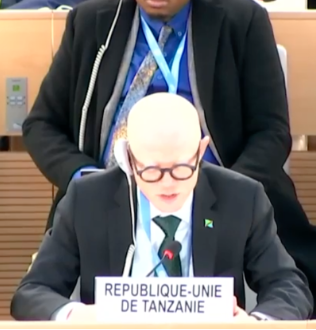
Several nations, including Nigeria, Sierra Leone, Kenya, Mozambique, Djibouti, United Republic of Tanzania, Panama, Sudan, Morocco, and Cameroon, underscored their unwavering commitment to advancing the educational rights of individuals with albinism. They elaborated on various national strategies, legislative frameworks, and collaborative efforts aimed at integrating persons with albinism into mainstream education systems. These efforts encompassed the provision of scholarships, training programs, and inclusive learning materials tailored to the specific needs of persons with albinism. These nations acknowledged persisting challenges, such as discrimination and socio-economic barriers, and affirmed their determination to tackle them directly through ongoing initiatives and international cooperation.
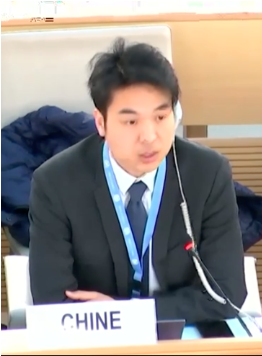
Countries like China, Angola, and Sudan expressed solidarity with the cause, highlighting the imperative of respecting and safeguarding the human rights of persons with albinism. They called for practical measures to combat discrimination, foster social inclusion, and enhance public awareness about albinism-related issues. These nations highlighted initiatives such as inclusive education policies, awareness-raising campaigns, and legal safeguards aimed at creating a supportive environment for persons with albinism. Additionally, they emphasised the importance of sharing best practices, supporting civil society organisations, and strengthening the normative framework to ensure effective implementation of human rights protections for individuals with albinism. Overall, the collective voice of these countries and organisations resonated with a resounding call to action, urging concerted efforts to advance the rights and well-being of persons with albinism. Their advocacy underscored the principles of inclusivity, equality, and dignity for all members of society, reinforcing the global commitment to upholding human rights and promoting social justice.
Contributions of NGOs
Numerous NGOs, including Humanist International, Centre de Commerce International for Development, International Service for Human Rights, Integrated Youth Empowerment Common Initiative Group, Platform for Youth Integration and Volunteerism, World Jewish Congress, Mother of Hope Cameroon, and Indigenous People of Africa Coordinating Committee, along with individuals representing the Africa Albinism Network and Under the Same Sun Fund, underscored the pressing need to address the challenges faced by persons with albinism in accessing quality education. These organisations emphasised the importance of raising awareness among educators and policymakers about the specific needs of persons with albinism. They advocated for policy guidelines, reasonable accommodations, and inclusive educational practices to ensure that learners with albinism receive the support they need to thrive in educational settings. Moreover, they urged Member States, particularly India, to collect segregated data, sensitise teachers, and implement targeted policies to support persons with albinism in their pursuit of education and uphold their fundamental rights.
NGOs Integrated Youth Empowerment Common Initiative Group and Platform for Youth Integration and Volunteerism
The NGOs highlighted the specific challenges faced by persons with albinism in India, where such persons are often marginalised and excluded from accessing their fundamental rights. Despite having a large population of individuals with albinism, India lacks comprehensive data profiling their specific needs, which hampers the formulation of effective policies and programmes to support them. Persons with albinism in India encounter social and family discrimination, hindering their access to education, employment, healthcare, and other essential services. These individuals are frequently denied admission to schools and face bullying and discrimination, further exacerbating their marginalisation. The NGOs urged the Indian government to address these issues by devising a national policy focused on education for persons with albinism, collecting segregated data, sensitising teachers, and implementing welfare schemes and policies to support this vulnerable community. Through concerted efforts and targeted interventions, these organisations aim to promote inclusivity and ensure that all individuals, regardless of skin pigmentation or physical appearance, have equal access to education and opportunities for socio-economic advancement.
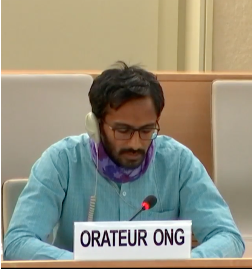
Some key questions posed to the Independent expert and her responses
Portugal: What practical tools can states develop to ensure that children and young persons with albinism have the necessary conditions to fully enjoy their rights to education?
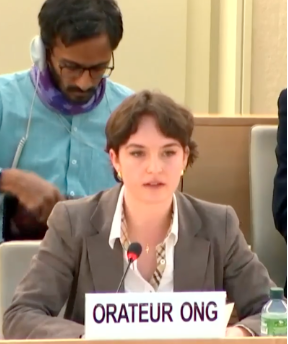
States can develop practical tools based on the recommendations outlined by the Independent Expert. These tools should focus on addressing the lack of understanding of the condition of albinism among educators, health workers, and social protection providers. This could involve the development of inclusive education policy guidelines for educators, guidelines for health workers, and guidelines for those working to deliver social protections. Additionally, efforts should be made to raise awareness about albinism and its specific requirements, and to combat bullying and discrimination faced by persons with albinism in educational settings. Further, states should collaborate with civil society organisations that understand albinism to provide support, awareness-raising, and educational interventions. Lastly, there is a need to improve accessibility in schools, ensuring that they are physically accessible and that educational materials are accessible to students with visual impairments.
NGO Rencontre Africaine pour la Defense des Droits de l’Homme: How can gaps in legislation on disability be remedied to ensure better accessibility and effective inclusion for persons with albinism in an education system without any discrimination?
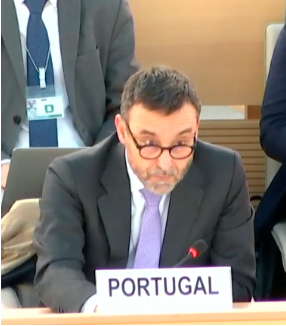
First, states should undertake a thorough review of existing laws and regulations pertaining to disability rights to identify any deficiencies in addressing the unique needs of persons with albinism. Following this review, countries can proceed to amend or enact legislation that explicitly recognises albinism as a distinct disability category and outlines specific measures to ensure accessibility and inclusion in educational settings. In addition to legislative action, countries should develop comprehensive policies and guidelines for inclusive education that account for the diverse needs of persons with albinism. These policies should encompass provisions for accessible infrastructure, such as classrooms and educational facilities, as well as inclusive teaching practices and reasonable accommodations to support learning. Moreover, countries must allocate sufficient financial and human resources to support the implementation of these policies, including funding for infrastructure upgrades, provision of assistive devices, and ongoing teacher training initiatives. Furthermore, countries should establish robust monitoring mechanisms to ensure compliance with inclusive education policies and legislation and to address instances of discrimination or barriers to access effectively. These mechanisms should involve regular assessments of educational institutions' adherence to accessibility standards, and the provision of support services for persons with albinism. Additionally, countries should promote awareness and understanding of albinism within the education sector and wider society to foster an inclusive and accepting culture. By adopting these approaches, countries can work towards closing gaps in disability legislation, promoting accessibility and inclusion, and ensuring that persons with albinism have equal opportunities to access quality education without facing discrimination or barriers.
Nigeria: How can states ensure effective coordination among stakeholders?
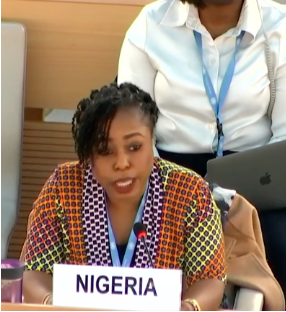
States should actively engage and support civil society organisations that work with persons with albinism. These organisations possess valuable expertise and can contribute significantly to awareness-raising, education, and advocacy efforts. Additionally, states should establish formal partnerships and collaboration mechanisms between relevant government bodies responsible for education, health, social protection, and human rights. By fostering cross-sectoral cooperation, states can ensure a comprehensive approach to address the diverse needs of persons with albinism. Further, it is crucial to promote the exchange of best practices and experiences among stakeholders through regular meetings, workshops, and forums. This facilitates learning from successful interventions and enables stakeholders to address challenges collectively. Additionally, states should consider developing national action plans or strategies specifically targeting the rights and needs of persons with albinism. These plans should outline clear roles and responsibilities for each stakeholder and include mechanisms for monitoring and evaluating progress.
Panama: In her statement the Independent Expert mentioned that reasonable accommodation measures should reflect maximum resources of a country and the needs of the individual. She was asked to provide more detail.
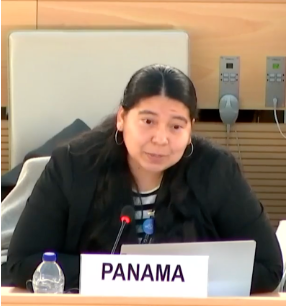
The Independent Expert emphasised the importance of ensuring that reasonable accommodations for persons with albinism reflect both the maximum resources of a country and the individual needs of the person. She highlighted that while international human rights laws mandate the provision of reasonable accommodations, it is essential for states to consider their economic resources when implementing these measures. She underscored the need for flexibility in implementing reasonable accommodation measures, particularly in resource-constrained settings. States should prioritise the allocation of resources to address the most critical needs of persons with albinism while also exploring innovative solutions and partnerships to maximise the impact of available resources. Reasonable accommodation measures must reflect both the maximum resources of a country and the individual needs of persons with albinism, underscoring the importance of balancing resource constraints with the imperative of ensuring the full enjoyment of their rights to education and other essential services.
European Union: The report mentions that some anti-bullying or anti-discrimination policies have not proven to be effective. How can states ensure the effectiveness of these policies in schools and in educational settings?
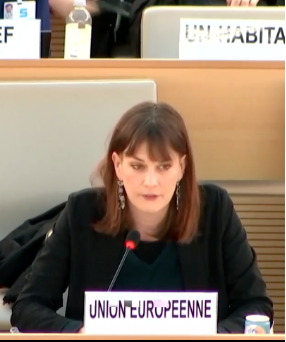
To ensure the effectiveness of anti-bullying and anti-discrimination policies in schools and educational settings, states can implement several strategies. First, states should develop comprehensive and inclusive anti-bullying and anti-discrimination policies that address the specific challenges faced by persons with albinism. These policies should clearly define prohibited behaviours, provide guidelines for reporting incidents, and outline disciplinary measures for perpetrators. Second, states must prioritise education and awareness-raising initiatives aimed at students, teachers, and school staff. This includes providing training on recognising and addressing bullying and discrimination, fostering empathy and understanding towards persons with albinism, and promoting a culture of respect and inclusion within educational institutions. Additionally, states should establish mechanisms to monitor and evaluate the implementation of anti-bullying and anti-discrimination policies. This may involve regular assessments of school environments, surveys to gather feedback from students and staff, and reviews of reported incidents and their resolutions. By regularly monitoring these policies’ effectiveness, states can identify areas for improvement and take corrective action as needed. Furthermore, states should ensure that appropriate support services are available for victims of bullying and discrimination, including counselling and mental health resources. Additionally, measures should be in place to support the rehabilitation and education of perpetrators to prevent further incidents and promote a positive school climate. Lastly, states should foster collaboration and partnerships with civil society organisations, parents, and community members to address bullying and discrimination comprehensively. By working together, stakeholders can leverage their collective expertise and resources to create safer and more inclusive learning environments for all students, including those with albinism.
Concluding Remarks by the Independent Expert
In her concluding remarks, the Independent Expert expressed gratitude for the active engagement of all participants in the dialogue. She underscored the need for inclusive education, advocating for integrating students with albinism into mainstream schools in their communities. Additionally, she highlighted challenges faced by students with albinism in accessing education and she suggested practical solutions like providing sunscreen and rearranging sports schedules. The Independent Expert concluded by urging for continued support for international albinism awareness day and emphasising the importance of creating accessible spaces for all. She expressed gratitude for the opportunity to engage with participants and commented she looked forward to future collaborations.
Geneva International Centre for Justice (GICJ) commends the efforts of states to implement policies to ensure the right to education for people with albinism. We remain extremely concerned about the ineffectiveness of these policies and the continued stigmatisation and discrimination against people with albinism. It is imperative that States heed the recommendations of the Independent Expert to ensure the rights of people with albinism.
#albinism #HumanRights #Geneva #geneva4justice #Justice #GICJ #GenevaInternationalCentreForJustice







